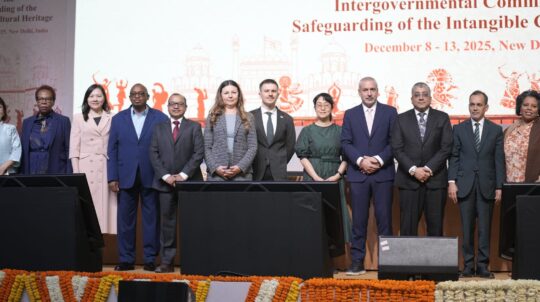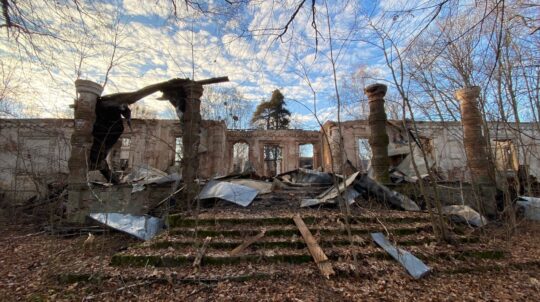On March 23, a session of the Committee on Culture, Science, Education and Media of the Parliamentary Assembly of the Council of Europe was held in Paris, chaired by Yevheniia Kravchuk, who is also the Deputy Head of Verkhovna Rada’s Humanitarian and Information Policy Committee. In addition to the members of the Committee, the session was attended by Krista Pikkat, Director of the Culture and Emergencies Entity, UNESCO.
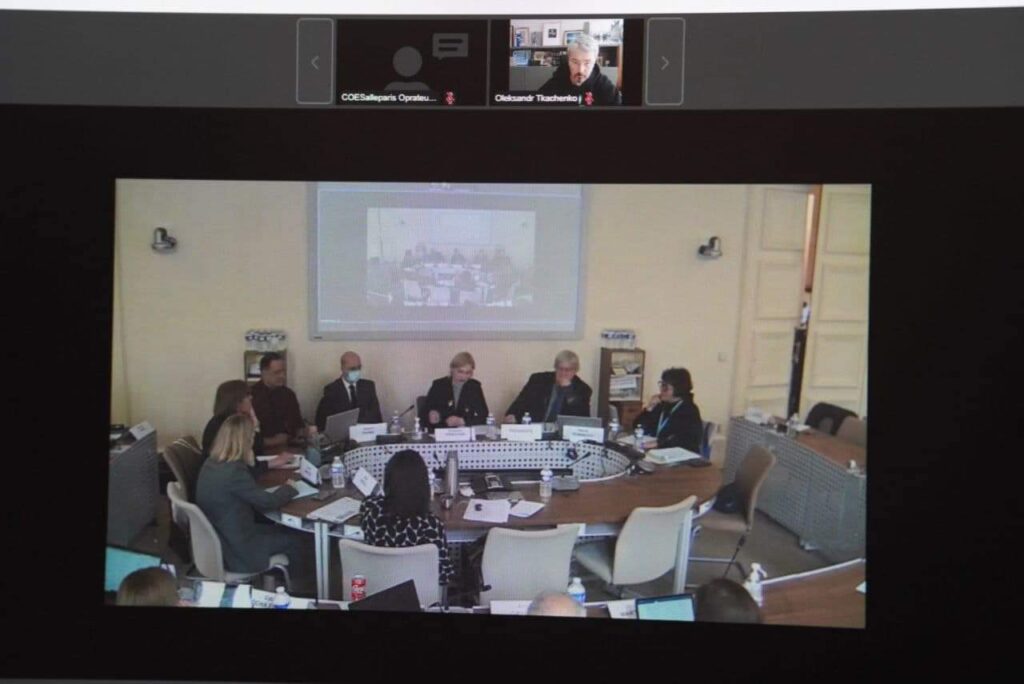
The session of the Committee was devoted to the topic of countering the destruction of cultural identity during the war. The results of this session will help in the preparation of the PACE’s resolution “Countering the erasure of cultural identity in war and peace”.
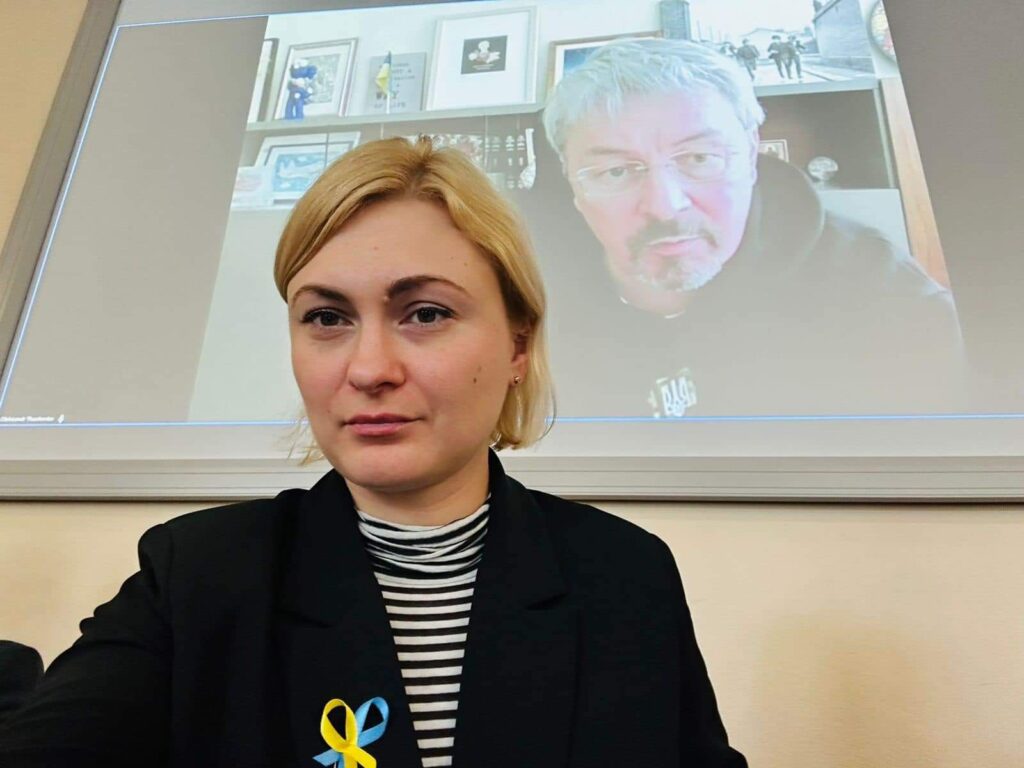
Oleksandr Tkachenko, Minister of Culture and Information Policy of Ukraine, took part in the online discussion. He shared the latest data on the number of destroyed and damaged objects, looted museum collections and other crimes committed by russians against Ukrainian culture.
“Cultural heritage is the main element of identification of the Ukrainian nation and the fundamental national interest of Ukraine. This is a saving factor in renewing our national memory. The cultural heritage of Ukraine is a direct concern of every Ukrainian and is an integral part of the world’s cultural heritage. russian aggression is aimed at the total destruction of the Ukrainian mentality and identity. This includes human losses on a national basis, genocidal crimes, the substitution of historical concepts, leveling the unique traditional achievements of the Ukrainian people, destruction of cultural heritage sites, theft of cultural property, and attempts to erase Ukrainian national memory,” Oleksandr Tkachenko said.
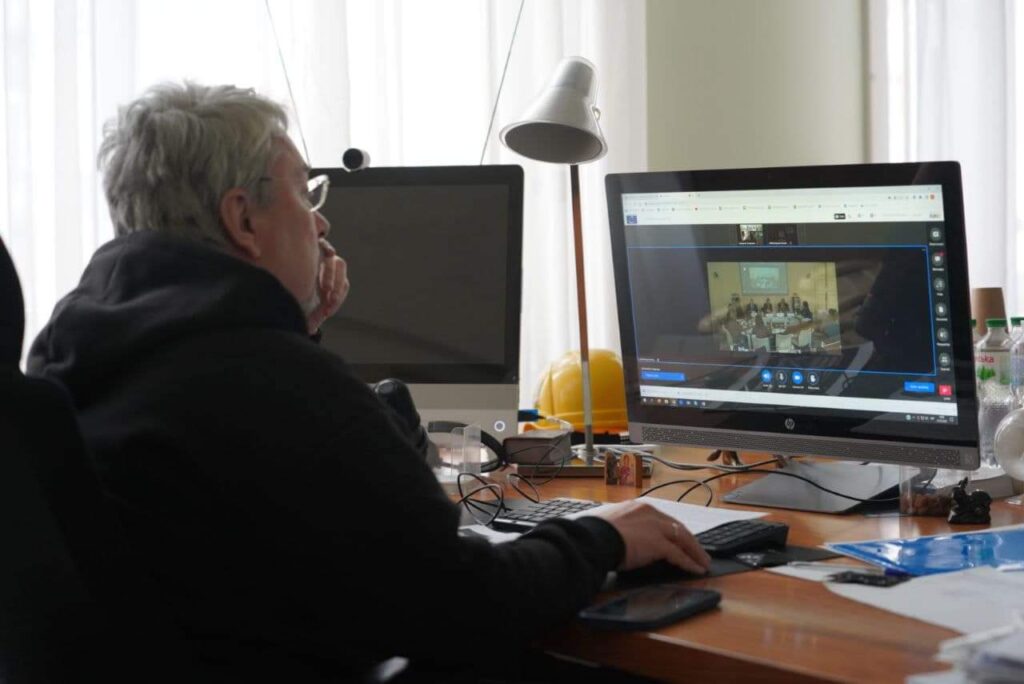
According to the Ukraine’s Minister, Ukraine expects PACE to recognize the russian federation as a country that commits cultural genocide, not only to impose sanctions against the russian federation, but also to seize the assets of russians, in particular the property of “Rossotrudnichestvo”, as well as to assist in the return of cultural property stolen by russians. As a reminder, that “Rossotrudnichestvo” is the largest, best-financed and most historically rooted institution of russian cultural diplomacy, which today spreads not only kremlin’s narratives and fakes, but also outright lies.
According to the latest data, at least 1,322 objects of cultural infrastructure and 580 objects of cultural heritage have been damaged or destroyed in Ukraine. Among them: architectural objects – 266, archaeological objects – 19, historical objects – 43, monumental art objects – 14, local cultural hubs – 623, libraries – 508, museums and galleries – 69, theaters (including cinemas) and philharmonic halls – 22, art educational institutions – 100. Completely destroyed objects: 505.
According to the preliminary calculations, around 23,217 objects, as well as 37 inventory books, were stolen from the Kherson Regional Local Lore Museum by russian occupation authorities. Losses from other museums, archives and other institutions which were looted are under verification.
Currently, certain Ukrainian elements of tangible and intangible heritage, in particular “The Culture of Ukrainian borscht cooking” has already inscribed on the List of Intangible Cultural Heritage in Need of Urgent Safeguarding (2022); and “The historic center of Odesa” – on the List of World Heritage in Danger (2023).
Oleksandr Tkachenko emphasized that Ukraine has been deprived of access to cultural heritage sites in the territories occupied by russia since 2014. These are, for example, the “Ancient City of Tauric Chersonese and its Chora” (World Heritage List 2013), “Archaeological Site “Kamyana Mohyla/Stone Tomb” (UNESCO Tentative List 2006) and National Steppe Biosphere Reserve “Askaniya Nowa” (UNESCO Tentative List 1989), which were occupied in 2022, and others.
